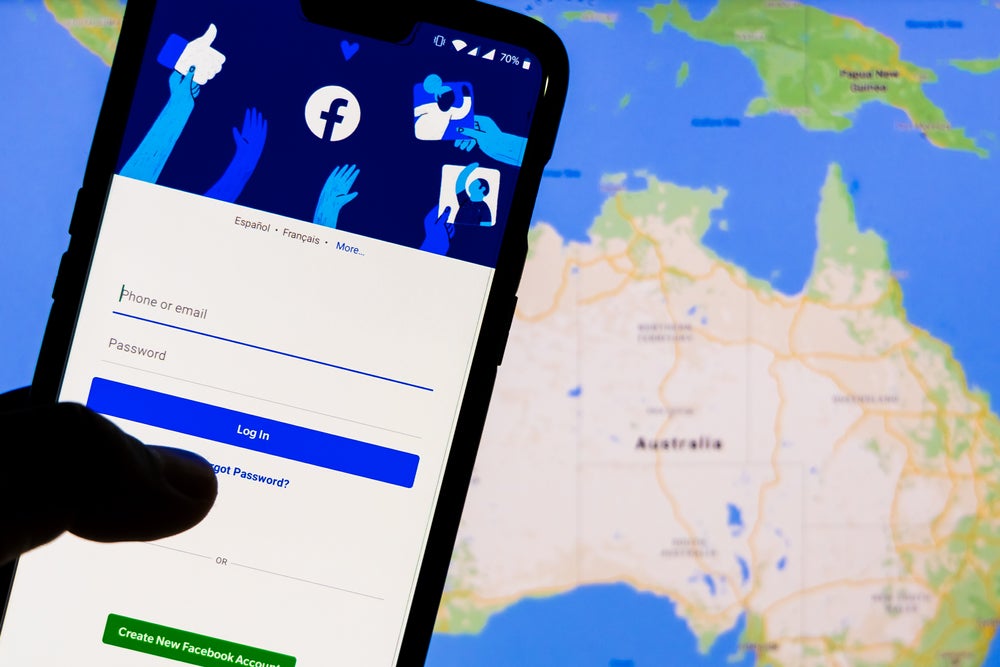
Facebook has blocked users in Australia from sharing and viewing news content in response to the country’s proposed new Media Bargaining law, highlighting the power that a tech giant can wield against a sovereign nation.
Under the Media Bargaining law, platforms such as Facebook and Google would be required to pay to feature news content on their sites. The law is designed to create a more level playing field online and offer a financial lifeline to news publishers that lose out to tech giants when it comes to online advertising revenue.
If the law is passed, news publishers will be able to negotiate prices with online platforms, and fines of up to AUS$10m, or 10% of the company’s local turnover, could be imposed if the law is breached.
This follows an investigation by the Australian government that concluded tech giants have too much market power in the media industry.
In a blog post, Facebook said that the proposed law “fundamentally misunderstands the relationship between our platform and publishers who use it to share news content”. The Silicon Valley firm argues that by posting their content on Facebook, publishers can sell more subscriptions, grow their audiences and increase advertising revenue.
In response to the proposed law, it has stopped allowing news content on its services in Australia. According to the BBC, some government health and emergency pages were also blocked, but Facebook said that this was accidental.
How well do you really know your competitors?
Access the most comprehensive Company Profiles on the market, powered by GlobalData. Save hours of research. Gain competitive edge.

Thank you!
Your download email will arrive shortly
Not ready to buy yet? Download a free sample
We are confident about the unique quality of our Company Profiles. However, we want you to make the most beneficial decision for your business, so we offer a free sample that you can download by submitting the below form
By GlobalDataUsers outside of the country are also currently unable to access content from Australian news publications on Facebook.
Google has also said it could stop its search engine from being accessed in Australia.
Australian Prime Minister Scott Morrison said that the country would not be intimidated by Facebook’s decision to “unfriend Australia”.
David Richards, CEO and co-founder at software company WANdisco, said:
“Facebook’s blockade of Australian users’ news feeds and its ongoing row with the country’s government is testament to the unruly power of the tech giant. It’s a clear example of how swiftly things can verge on censorship in a media environment controlled by tech platforms.
“What’s perhaps more important, however, is that Facebook has made a major misstep here when it comes to content curation. Australia is looking to counter Facebook’s bullying approach, and by doing so can set a new precedent – one which creates a new way for news content providers to recoup money for the service they are providing.
“This could well be a watershed moment, and an opportunity to curtail Facebook’s monopoly – and indeed that of other tech platforms. Australia is boldly leading on battlefront against tech domination, and we’ll hopefully be seeing publishers of news content kick back against the dangerous and long-standing arrogance from the tech giants.”
If the Media Bargaining law is passed, it will have a significant impact on not only the media landscape, but on tech giants as well, causing some to speculate that it could prompt other countries to consider similar regulation.
According to Ofcom, half of UK adults use social media to keep up with the latest news.
Martin Garner, COO at market intelligence company CCS Insight, said:
“The proposed law in Australia forcing Facebook and Google to pay local media firms for news content is a perfect example of how the wishes of big web companies are increasingly being pitted against those of national governments. It is hard to predict the outcome in any specific country, but it is clear that governments will see it as their sovereign right to make decisions about the laws they pass.”
“Australia’s move will be watched keenly by countries around the world. In making decisions about regulating major web players, governments have to balance their policies against the possibility that the companies could ultimately pull out of that country. But pulling out would be a bad outcome for both sides: if Facebook blocks news in Australia, it will also reflect badly on Facebook.”
“We are at a point in history where the huge web players should be fully and constructively engaged with governments around the world. Governments need to embed the most advanced digital services into the way their countries run, to accelerate the digitalisation of their economies, and to achieve the efficiency gains possible to improve sustainability. The fact that relationships between some of the web players and governments are currently getting worse, with increasing antagonism, is a costly failure.”
Read More: Jimmy Wales: Advertising-only model has been “incredibly destructive” for journalism.







